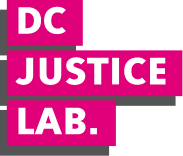- There is a public hearing on the bill in the committee.
- There is a markup meeting where lawmakers offer changes to the bill.
- There is a committee vote where members decide whether to recommend the bill to the full Council vote.

How Does the Lawmaking Process work?
When someone comes up with an idea for a bill, there are a series of steps one would need to take to move from an idea to a fully enacted law. Here, we answer the questions any resident may have about how a bill becomes a law, including how the key people, organizations and government bodies work with each other in the process. While the process looks complicated, anyone can – and many people have – taken their ideas around what would make DC safer, freer, and more equal and changed the law to make lasting change.
How a bill becomes a law
- The full Council has to vote on each bill twice.
- The two votes are called First Reading and Second Reading.
- If the Mayor signs or does not sign the bill, it moves to congressional review.
- If the Mayor vetoes the bill, it goes back to the Council for a veto override vote. If the Council overrides the veto, it moves to congressional review.
- A bill that does not receive a veto override dies and is not sent to Congress for review.
Congress can block DC legislation with a disapproval resolution that is not vetoed by the president of the United States.
What about the process for other types of bills?
Emergency Bill
- No Council committee review
- One Council vote
- Mayoral Review
- No congressional review
- Effective immediately
- Lasts 90 days
- No unfunded costs are permitted
Temporary Bill
- No council committee review
- 2 Council votes
- Mayoral review
- Congressional review
- Lasts 225 days
- No unfunded costs are permitted
Lawmaking process FAQs
You can. Anyone can come up with an idea to change a law, or make a new law, and anyone may offer written legislation to lawmakers.
The only people who can introduce a piece of legislation are Council members, but they can get their ideas from anyone. The Chairman of the Council may also introduce bills on behalf of other elected officials, like the Mayor or the Attorney General.
The Council performs much of its work in smaller groups called committees, like the Committee on the Judiciary and Public Safety. It is in these 11 committees that members review bills, vote on the annual budget, and oversee the departments and agencies that are under the Mayor’s control. Each committee is made up of five members, one of whom serves as chairperson. The Chairman of the Council determines the committees and the chairs before the beginning of each Council period. There is one committee that has all 13 council members, the Committee of the Whole. After a committee passes a bill, all the members of the Council have an opportunity to weigh in.
In the smaller committees with five members, a simple majority (three votes) is required to move anything out of committee. Key stages include a markup vote, where lawmakers weigh in on changes to a law, and a committee vote, where the five members decide whether to recommend the revised legislation for a full Council vote. If the bill gets at least three votes through these stages, it moves to the full Council for review in the Committee of the Whole. There are at least two votes, a first reading and a second reading, and to move forward a law change must have at least seven of the 13 council members voting yes.
If a bill is passed by the Council, the Mayor has 10 business days to review it. The Mayor has three options:
1) Sign the bill, which signals support and moves it to Congressional review;
2) not sign the bill, which signals a lack of support but still moves it to Congressional review, or
3) veto the bill, that is, actively oppose the bill, which can prevent or delay the bill moving forward.
If the Mayor vetoes a bill, two-thirds (nine or more members) of the Council must vote to override to send the bill to Congress.
DC is not a state, so our local government does not get the same power as other state governments. Congress has no official power when it comes to state laws. Here, every bill passed by the District has a period of Congressional review, including our budget. Under the Home Rule Act that governs how DC works with Congress, the House and the Senate have between 30 and 60 days, depending on the bill, to review it. If Congress takes no action, the bill simply becomes law. If both the House and the Senate vote to disapprove the legislation, it cannot become law unless the President vetoes the disapproval legislation. Congress has disapproved four pieces of legislation since 1973.



